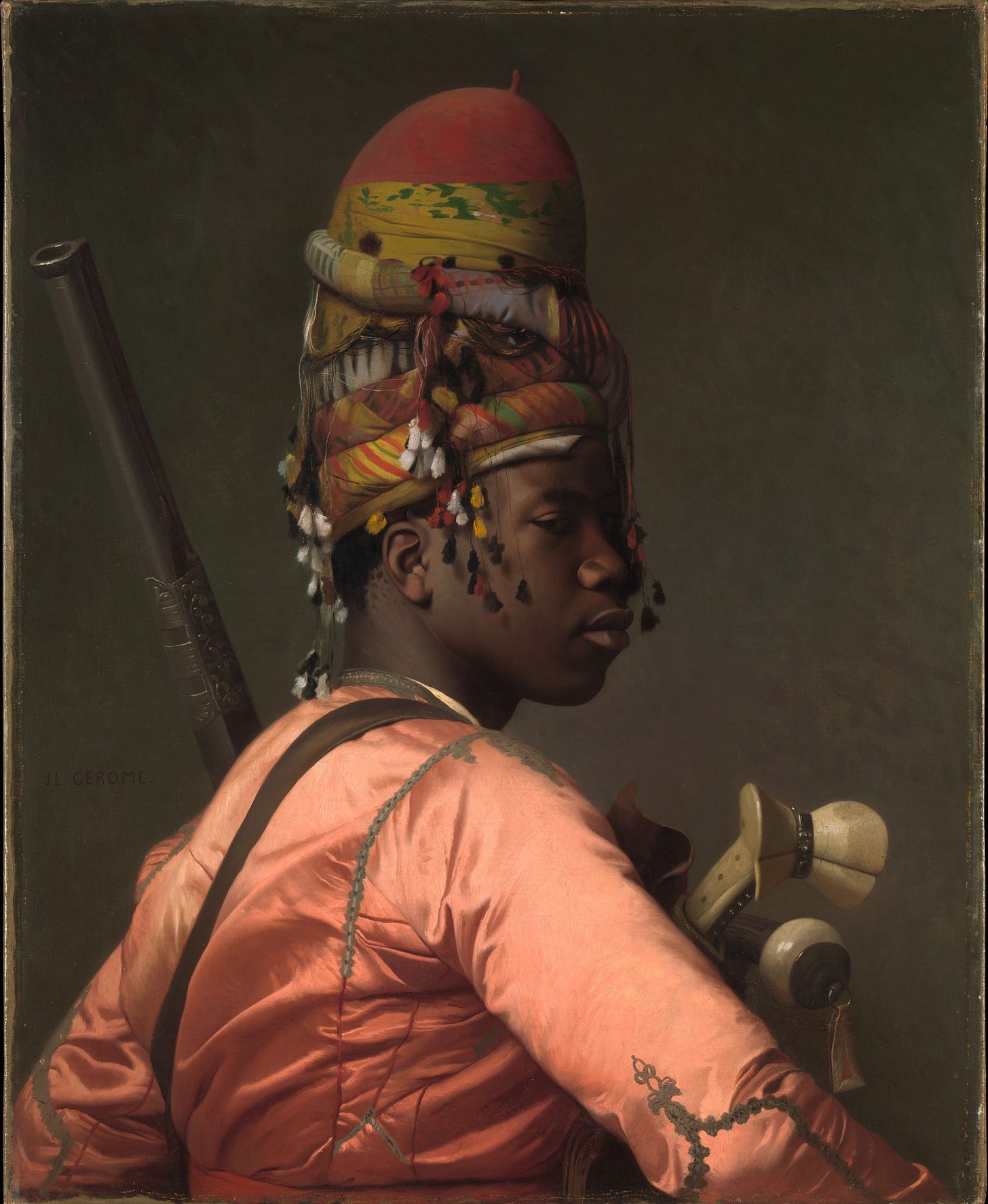Black Bodies In Motion Are Never Without Consequence: Black History Month Film Recommendations & An Essay for Y’all
We are only a few days into Black History Month and it is already feeling wild. Here's a dynamic Letterboxd list and accompanying essay to guide your viewing and considerations of black life.

Only a few days into Black History Month and it is already an exceedingly wild one. It was clear to me beforehand that would be the case. When I saw at the end of January — first on Bluesky, then reported by NBC News — a document from the Defense Intelligence Agency instructing personnel to suspend any activities surrounding federal holidays including Martin Luther King Jr. Day, Black History Month, Pride, and Juneteenth, it was clear that the executive orders being handed down by this current oligarchy nestled into the halls of power in Washington were inspiring many in their ranks to go completely mask off about their vehemence against life that doesn’t fit within the slim borders of white, Christian, and patriarchal.
For as obsessed America is with blackness and stripping our artistry for parts this country never stopped hating black people in all our permutations. This was on my mind when I was lightly paying attention to the Grammy’s Award ceremony on Sunday. No award show makes me feel less plugged into the rigors of modern mainstream middlebrow pop culture. The Grammys lavishly awarded the very deserving pop icons Kendrick Lamar, Doechii, and Beyoncé finally garnering album of the year for Cowboy Carter. But it was also the same award ceremony that saw Babyface outright disrespected on the red carpet by a white interviewer for AP News who was actively disinterested in speaking to the legendary producer and artist as she bent her body over to gain the attention of Chappell Roan and then outright called for her interrupting his answers. Babyface is kinder than I would be, “You guys want to take that?” To say black people online were upset would be an understatement.
Incidents like this are a stunning reminder to not invest your worth and artistry in pleasing the white gaze — including when it comes to the obsession with celebrating black wins at oft-white dominated award shows as a marker of progress. Progress for what and for whom, exactly? Look, I am broadly pleased to see black folks get the bag and find consistent creative success. But we, as black people, should never invest our self-worth in such institutions.
My mind turns to an incisive interview with the Ethiopian filmmaker Haile Gerima for Mubi’s Notebook in 2021 by A.E. Hunt. Gerima, a filmmaker a part of the L.A. Rebellion, is perhaps best known for 1993’s Sankofa, a slippery and incendiary film about a modern woman who is transported to the past as a house slave on a Louisiana plantation. Hunt asked Gerima, “You’ve said before that Black creatives who infiltrate Hollywood, or what you call the “Lion’s Den” or the “21st century plantation,” hardly ever return from it. Today I think we’re seeing more people who have infiltrated and more or less successfully returned. Do you feel the same way about Hollywood infiltration today?” The answer is one I cherish and has refined my thoughts on the subject of selling your soul as a black person for success that is legible in the white imagination:
“For me, infiltrating is one thing, but I would say, do not drown yourself in somebody else’s house, do not disappear in somebody’s plantation. One, know always that it’s not your plantation, and two, build your own plantation, however humble it is. You can go to infiltrate and piecemealy die. The piecemeal death is the most dangerous part. If you infiltrate and take technology? Good. If you take financial possibilities without compromising your creative possibilities? Good. It’s possible, some people do that. There are white people who do that. But nonwhite people are psychologically set in a different situation, they are busy proving themselves to the system that they are valid. And before they know it, they become the age of Sidney Poitier.”
I am currently reading My Tender Matador, written by Chilean author Pedro Lemebel and translated by Katherine Silver. I’m eighty-five pages deep into the slim, vibrant, lascivious novel.





